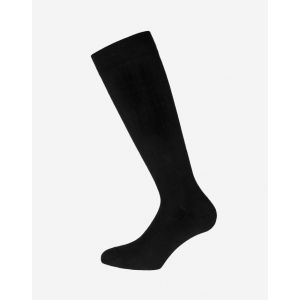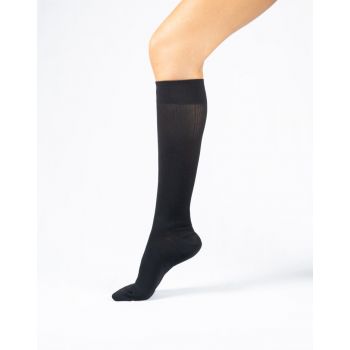Economy class syndrome. All you need to know.


Sitting for too many hours can cause circulatory problems. If you are going on a long trip, this article is for you.
What is the economy class syndrome?
The economy class syndrome is a vascular disease caused by long periods of poor mobility. It was about 30 years ago that particular suffering began to be detected in people on long journeys. Sitting for long hours in economy class caused venous thrombosis in some passengers. Hence the name of this disease.
Venous return is usually more limited when we spend too much time without getting up from our seats. Blood circulates more slowly and can lead to venous thrombosis, which develops due to the formation of clots in the veins of the lower leg, usually. These clots can dislodge and clog blood vessels in areas such as the brain, lungs or heart.
The economy class of a few decades ago left little room for passengers to manoeuvre, making small leg movements even more difficult. However, this problem still exists and still affects the health of many people. We should not only be concerned about long journeys by plane but also prevent circulatory mishaps on car, bus and train journeys of more than four hours.
What symptoms can indicate venous thrombosis?
Some signs of venous insufficiency may become evident during travel. If you notice the following effects in your feet or legs, it is likely that the return blood is not reaching its destination:
- Swelling
- Tingling
- Heaviness and pain
However, when a clot occurs, the effects are more noticeable. There is some difficulty in walking and oedema in the legs is common. It is important to note that these pains are more intense at the destination a few hours after the long journey.
Causes of the economy class syndrome
There are certain circumstances that favour the formation of clots:
- Advanced age
- History of thrombosis
- Obesity
- Pregnancy
- Recent surgery
- Heart failure
- Varicose veins
- High blood pressure
If you identify yourself with any of these situations, read the recommendations below. And consult your doctor before you travel.
How to treat economy class syndrome?
When someone suffers from venous thrombosis, treatments are given to prevent the clot from growing in size and travelling to the lungs. The main element given to patients is anticoagulants, which do not dissolve existing clots but prevent new clots from forming. They can be taken orally or intravenously. Heparin, for example, is usually administered by the latter method.
In cases of deep vein thrombosis, thrombolytics may be prescribed to dissolve clots. However, they are only administered in severe cases. In fact, in cases of pulmonary embolism, hospital admission is necessary.
Compression socks or stockings are also recommended to compress the lower leg and improve blood return. You should also get plenty of rest and drink plenty of fluids.
How can I prevent economy class syndrome?
You can considerably reduce the chances of thrombosis due to long hours of travel by taking the following measures into account:
- Choose the seats closest to the aisle. You will have more access to the aisle so that you can walk around with complete peace of mind whenever possible.
- Take occasional walks. Force yourself to walk both in the aisle and in the airport if you make stopovers. You will get your blood flowing better and prevent it from pooling in your limbs.
- Don't bend your legs too much. When sitting or sitting, don't bend or cross your legs for too long at a time. It is best to relax them and do some contraction exercises from time to time.
- Don't put luggage under the front seat. If you do, you will lose space where you could rest your legs.
- Stay hydrated. Drink water constantly, before and during the journey. It's one of the best habits to improve circulation. Avoid food or drinks that can dehydrate you, such as coffee or alcohol.
- Wear comfortable clothes and shoes. Don't wear boots or heels if you are going on a long journey. If you can be barefoot, your feet will be grateful. As for clothing, avoid wearing clothes that are too tight around the calf. Opt for loose-fitting clothing.
- Wear compression socks. If you already have varicose veins or spider veins, it is even more important to wear them. With gradual compression starting at the ankle and tapering down to the knee, these socks help improve venous return. Try Antipress soft compression socks to benefit your blood flow.
- Consult your doctor. Do you have more specific questions? Don't hesitate to contact your doctor for worry-free travel.



